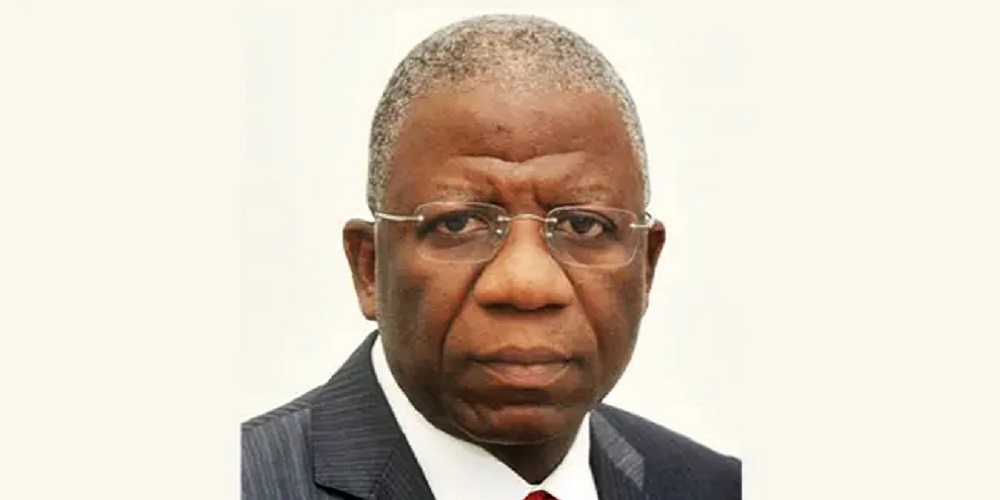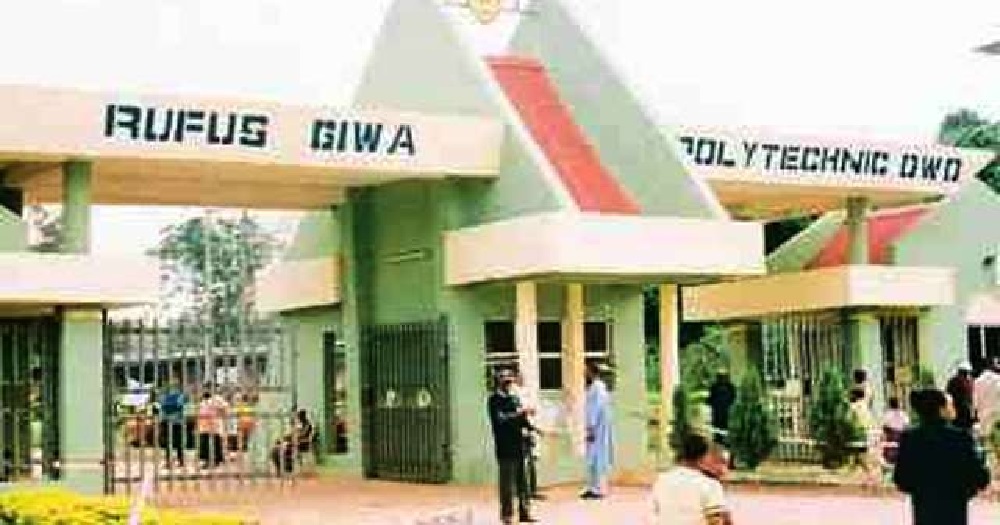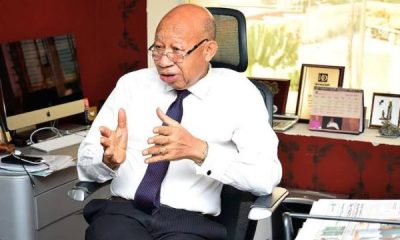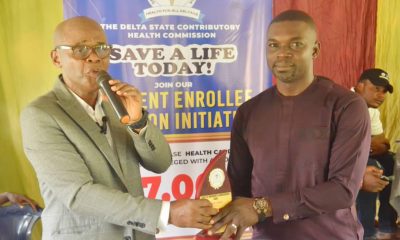News
Oronsaye Report: Full List of Agencies to be scrapped, merged, relocated

The Executive Council of the Federation, also known as the Federal Executive Council (FEC) on Monday approved the implementation of the recommendations of the Steve Oronsaye panel on the restructuring and rationalisation of Federal agencies, parastatals and commissions.
The government said the implementation of the policy involves the merging, subsuming and scrapping of agencies with similar functions.
Bayo Onanuga, the special adviser on information and strategy to President Bola Tinubu said the measure became necessary to enhance efficiency in the federal service, and reduce the cost of governance.
“The Oronsaye report was submitted in 2012 to the Goodluck Jonathan administration,” Mr Onanuga said in a statement. “In 2014, the Jonathan government released a white paper on the report. The Buhari administration after re-examining the white paper also released a second white paper in August 2022, but did not implement the report.
“However, the Tinubu administration has decided to confront the monster of high governance cost by implementing elements of the report.
“An eight-man committee has a 12-week deadline to ensure that the necessary legislative amendments and administrative restructuring needed to implement the reforms are effected in an efficient manner.
“The committee comprises Secretary to the Government of the Federation, Head of the Civil Service, Attorney General and Justice Minister, Budget and Planning Minister, DG Bureau of Public Service Reform, Special Adviser to the President on Policy Coordination, Special assistant to the president on National Assembly. The Cabinet Affairs Office will serve as the secretariat.”
The Senior Special Assistant to the President on Print Media, Abdulaziz Abdulaziz, later shared a full list of the agencies to be affected with Sources.
Find the list below.
LIST OF AGENCIES, COMMISSIONS AND PARATALS AFFECTED BY THE APPROVAL OF THE FEDERAL EXECUTIVE COUNCIL MEETING [FEC] MEETING OF 26TH FEBRUARY 2023 ON THE RECOMMENDATION OF THE 2022 AND 2012 REPORTS ON RESTRUCTURING AND RATIONALIZATION OF FEDERAL GOVERNMENT PARASTATALS AGENCIES AND COMMISSIONS [ORONSAYE PANEL REPORT]
AGENCIES TO BE SCRAPPED
1. Pension Transitional Arrangement Directorate to be scrapped and functions
transferred to the Federal Ministry of Finance
2. National Senior Secondary Education Commission (NSSEC) to be scrapped and
functions transferred to the department of Basic and Secondary Education in
Federal Ministry of Education.
AGENCIES TO BE MERGED
1. National Agency for the Control of Aids (NACA) to be merged under the Centre
for Disease Control in Federal Ministry of Health.
2. National Emergency Agency (NEMA) to be merged with National Commission
Refugee, Migration and Internally Displaced persons [NCFRMI].
3. Directorate of Technical Cooperation in Africa (DTCA) to be merged with
Directorate of Technical Aid (DTAC) and to function as a department in the
Ministry of Foreign Affairs.
4. Infrastructure Concession and Regulatory Commission (ICRC) to be merged with Bureau for Public Enterprise (BPE).
5. Nigerian Investment Promotion Commission (NIPC) to be merged with Nigerian Export Promotion Council (NEPC).
6. National Agency for Science and Engineering Infrastructure (NASENI) to be
merged with National Centre for Agriculture Mechanization (NCAM) and
Project Development Institute (PRODA)
7. National Biotechnology Development Agency (NABDA) to be merged with
National Centre for Genetic Resources and Biotechnology (NACGRAB).
8. National Institute for Leather Science Technology (NILEST) to be merged with
National Institute for Chemical Technology (NARICT).
9. The Nomadic Education Commission (NEC) to be merged with National
Commission for Mass Literacy, Adult Education and Non Formal Education.
10. Federal Radio Corporation (FRCN) to be merged with Voice of Nigeria (VON)
11. The National Commission for Museums and Monuments to be merged with National gallery of Arts.
12. The National Theatre to be merged with National Troupe of Nigeria.
13. The National Metallurgical Development Centre (NMDC) to be merged with National Metallurgical Training Institute (NMTI).
14.Nigerian Army University (NAUB)should be merged Nigerian Defence Academy
(NDA)
15.Airforce Institute of Technology (AFIT) should be merged Nigerian Defence
Academy (NDA)
AGENCIES TO BE SUBSUMED
1. Service Compact with all Nigerians (SERVICOM) to be subsumed to function as
a department under Bureau for Public Service Reforms (BPSR).
2. Border Communities Development Agency (BCDA) to be subsumed to function
as a department under the National Boundary Commission (NBC).
3. National Salaries, Income and Wages Commissioned (NSIWC) to be subsumed
into Revenue Mobilization & Fiscal Allocation Commission (RMAFC).
4. Institute for Peace and Conflict Resolution to be subsumed under Nigerian
Institute of International Affairs (NIIA)
5. Public Complains Commission (PCC) to be subsumed under National Human
Rights Commission (NHRC).
6. Nigerian Institute for Trypanosomiasis (NITR) to be subsumed into Institute of
Veterinary Research (VOM).
7. Nigerian Natural Medicine Development Agency (NNMDA) to be subsumed
under the National Institute of Pharmaceutical Research and Development
(NIPRD).
8. National Intelligence Agency Pension Commission to be subsumed under the
administration of Nigerian Pension Commission (PenCom).
9. The Nigerian Film and Video Censors Board (NFVCB) to be subsumed as a
department in the Ministry of Arts, Culture and Creative Economy.
AGENCIES TO BE RELOCATED
1. Niger Delta Powerholding Company (NDHC) to be relocated to Ministry of
power.
2. National Agricultural Land Development Agency [NALDA] to be relocated to the
Federal Ministry of Agriculture and Food Security
3. National Blood Service Commission to be converted into an Agency and
relocated to the Federal Ministry of Health
4. Nigerians in Diaspora Commission (NIDCOM) to be converted into an Agency
and transferred to the Ministry of Foreign Affairs.
[PremiunTimes]
News
A’Court reserves judgment on Kano LG poll dispute

A special panel of the Court of Appeal sitting in Abuja has reserved judgment in five separate appeals arising from the legal disputes surrounding the conduct of the 2024 local government elections in Kano State.
The appeals stem from two rulings delivered by the Federal High Court in Kano, which, among other declarations, nullified the composition of the Kano State Independent Electoral Commission.
The cases include Appeal No. CA/KN/20/2025, filed by KANSIEC with the Independent National Electoral Commission and four others listed as respondents.
Another, CA/KN/233/2024, was filed by the Kano State House of Assembly and another party, with Aminu Aliyu Tiga and 14 others as respondents.
Appeal CA/KN/290/2024 was brought by the Attorney General of Kano State and six others against the All Progressives Congress and three others.
Additionally, Appeal CA/KN/291/2024 was filed by KANSIEC and eight others, with the Kano State House of Assembly and six others listed as respondents.
In the appeal marked CA/KN/233/2024, the Kano State House of Assembly and another appellant, represented by Chief Adegboyega Awomolo (SAN), urged the appellate court to overturn the judgment of the Federal High Court, which had barred KANSIEC from conducting local government elections.
Awomolo argued that the Federal High Court lacked jurisdiction to entertain the case, noting that the suit filed by Aminu Tiga and the APC was statute-barred at the time of filing.
He also contended that the plaintiffs lacked the legal standing to initiate the case.
Justice Simon Amobeda of the Federal High Court had, on October 22, 2024, restrained KANSIEC from conducting elections in the 44 local government areas of Kano State.
The judge ruled that the electoral commission’s members were card-carrying members of the ruling New Nigeria People’s Party, in breach of Sections 197 and 200 of the 1999 Constitution.
Justice Amobeda further directed INEC not to release the national voters’ register for the purpose of the local government elections in the state.
Additionally, he barred the police, the Department of State Services, and other security agencies from providing support or protection for the polls.
Unhappy with the verdict, the Kano State House of Assembly and other affected parties approached the Court of Appeal, arguing that local government election matters are under the exclusive purview of the state and can only be adjudicated by a Kano State High Court—not the Federal High Court.
After hearing all arguments on Tuesday, the three-member appellate panel led by Justice Georgewill Ekanem announced that judgment had been reserved and would be delivered on a date to be communicated to the parties involved.
News
Ondo poly workers commence strike action over unpaid wages

Workers at the Rufus Giwa Polytechnic, Owo, in Ondo State on Tuesday embarked on an indefinite strike over the non-payment of salaries by the Ondo State Government.
The striking workers, who are members of the Non-Academic Staff Union and the Senior Staff Association of Nigeria Polytechnics, staged a peaceful protest on the institution’s campus to express their grievances.
The aggrieved staff revealed they are being owed six months’ salaries and accused the government of failing to implement the national minimum wage.
They carried placards with messages including, “We are hungry, pay our six months’ salaries,” “Mr Governor, please implement our 2025 budget,” and “Acting Rector, please clear our 2022, 2023, and 2024 promotion arrears.”
During the protest, the Chairman of NASU, RUGIPO chapter, Mr. Julius Olugbenga-Aro, and his SSANIP counterpart, Mr. Saka Olokungboye, called on Governor Lucky Aiyedatiwa to urgently address the workers’ demands.
They lamented the hardship faced by their members, saying many are unable to meet basic needs due to the unpaid wages.
Olugbenga-Aro stated, “This protest is to express our frustration over the non-payment of six months’ salary arrears and the failure of the Ondo State Government to implement the national minimum wage for polytechnic staff.”
While acknowledging some of the governor’s developmental efforts at the institution, including the recent approval for the polytechnic’s conversion to a university, the union leaders appealed for more urgent actions.
They urged the state government to approve immediate payment of the outstanding salaries, ensure full implementation of the 2025 institutional budget, and begin payment of the new national minimum wage.
They also warned that failure to act swiftly could result in prolonged disruptions to the academic calendar, further affecting students and the institution at large.
News
Court imposes N100m damages penalty on Abuja school over student’s death

A Federal Capital Territory High Court in Abuja on Tuesday awarded the sum of N100m in general damages against Louisville Girls Secondary School, Gwagwalada, for negligence of duty of care which led to the death of a student.
Mr Ifeanyi Ikpeatusim had sued the school for negligence that resulted in the death of his 9-year-old daughter, Kamzie,
In the suit marked CV/1738/18, Ikpeatusim alleged that the school’s failure to provide adequate medical attention after Kamzie who fell ill shortly after her admission and resumption in the school led to her untimely death.
Kamzie, who was admitted as a boarding student in September 2017 became severely ill by October 2 and died a few days later.
Justice Sylvanus Oriji, while delivering judgment in the suit brought before the court after awarding the N100m cost, ordered a 10 per cent interest on the judgment sum from April 8 until full payment.
He also awarded an additional N300,000 as the cost of the suit.
Justice Oriji while pronouncing the decision of the court, held that the evidence presented showed the school and its agents acted negligently by failing to attend promptly and adequately to Kamzie’s medical needs.
“The claimant established his allegations of negligence against the school.
“There is no amount of money that can bring back the child to life,” he stated.
Justice Oriji however acknowledged the fact that one significant outcome of the case was the improvement of the school’s sickbay following the incident.
He noted that the presence of doctors attending to students twice daily was a commendable development.
While the claimant had asked the court to order the school to name one of its structures in Kamzie’s name in her honour, Justice Oriji noted that the improvement in the school’s sickbay was sufficient enough to know the school is making amends from its mistake.
“The court thinks that the improvement in the sickbay, ensuring doctors are available twice daily, is in honour of Kamzie, as part of reforms recommended by her family.
“The claimant should take solace in the fact that Kamzie has been honoured by the school through these improvements.”
-

 News9 hours ago
News9 hours agoOERAF held memorial lecture on conflict resolution, security/safety of community in Nigeria
-

 News18 hours ago
News18 hours agoJust in: Founder of Diamond Bank and ex-chairman of MTN, Paschal Dozie is dead
-

 News14 hours ago
News14 hours agoTRADE WAR! U.S. angry over Nigeria’s import ban on 25 products
-

 News19 hours ago
News19 hours agoNaira Nosedives Against Dollar
-

 Sports18 hours ago
Sports18 hours agoReal Madrid keeping tabs on Victor Osimhen
-

 News20 hours ago
News20 hours ago2Baba’s Lover Natasha Osawaru Fired As Edo Assembly Minority Leader
-

 News18 hours ago
News18 hours agoOERAF Executive Director Dr Akpodiete, Held Memorial lecture on Essence and benefits of health insurance+Photos
-

 News14 hours ago
News14 hours agoINTERVIEW: Introduction of Child Rights Curriculum In Nigerian Universities Will Take CRA to Families – Dr Obiorah Edogor





